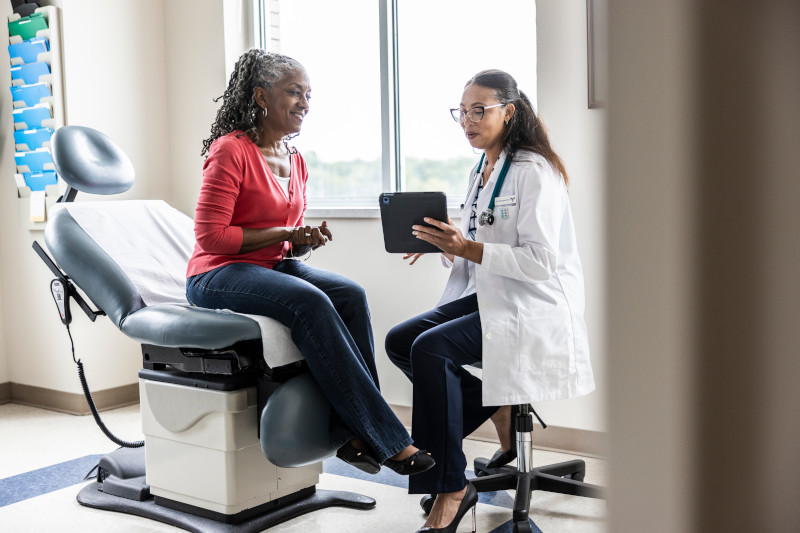AARP Hearing Center

It's unlikely that the shortage of healthcare providers and workers will improve anytime soon, especially in a rural state like Wyoming, but Artificial Intelligence (AI) could provide some relief and translate into a better quality of care.
Not only can AI improve information accuracy, leading to more precise diagnoses, but it can also reduce the need for frequent in-person visits, saving time and energy for patients who may live far from the nearest clinic or who are immunocompromised and wish to avoid exposure to other illnesses.
Here are a few ways AI is or can work in your course of care:
Remote patient monitoring: Using Bluetooth or Wi-Fi-enabled devices, AI-powered devices can track vital signs like blood pressure, heart rate, and oxygen levels from the comfort of your home. This technology allows healthcare teams to monitor health in real time and detect changes or warning signs before they become serious.
If an AI system detects something abnormal—such as an elevated heart rate or irregular rhythm - it can alert a doctor or nurse who can make more informed decisions than monitoring alone. After all, many people experience elevated blood pressure and heart rate just from being in a doctor's office, which can lead to inaccurate readings and diagnoses.
If this is something you are interested in, contact your provider and ask if you are a good fit for RMP.
Early disease detection: AI can quickly evaluate your entire medical record (something that would take a human much longer to do) and pick up on concerning trends. For example, it might spot indicators of diabetes, heart disease, or other conditions. This helps your doctor intervene before conditions become more serious. This is especially valuable in Wyoming, where access to specialists is limited, and travel to a larger hospital may be difficult.
Increase Healthcare Efficiency and Safety: AI has the potential to greatly increase both efficiency and safety in healthcare by streamlining administrative tasks. With AI-driven systems managing data entry, checking for medication interactions, and helping with scheduling, healthcare providers can focus more on direct patient care rather than spending time doing these tasks themselves. This reduces errors that might arise from rushed manual entries and helps ensure that patient records are accurate and up-to-date.
Imagine a healthcare experience where your doctor has the time to discuss your questions and concerns in depth without feeling rushed. AI isn't a robot overlord that will replace the personal connection that healthcare professionals provide, but it can help them have better data and be more available, efficient, and focused on your needs.
While it’s easy to be skeptical, AI is not here to replace doctors, nurses, or receptionists. Careful use of AI can help with behind-the-scenes tasks that often pull healthcare teams away from direct patient care allowing your doctor to be present when they are with you in the exam room.































































